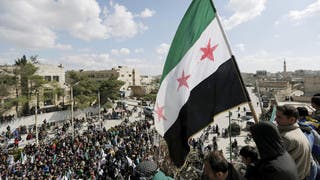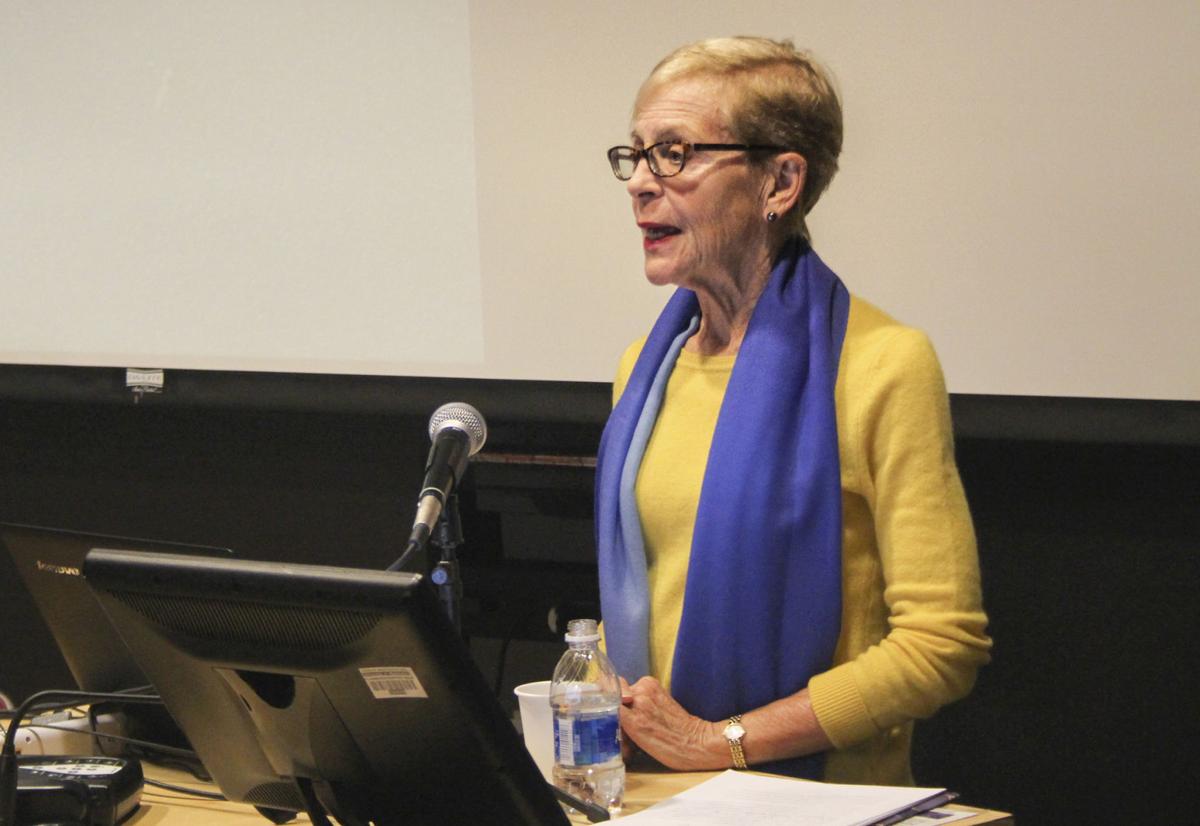
'No one wants to be a refugee.
My husband and I loved our home in Daraa, Syria: a spacious house with a courtyard that smelled of jasmine, where we ate in the evenings with our families and friends. We raised our daughters and sons to work hard and get an education; two graduated from college, and two were almost finished when the revolution began. My husband was a successful businessman; I took care of our home.
As Sunni Muslims in a country controlled by the Alawite minority, we lived with the unfairness that the good jobs went to the Alawites, but we knew how to work within the system. We were happy. We loved our lives. We never locked our doors. Why would we? We knew all of our neighbors. We were always safe.
Our family’s journey as refugees started in January 2012, when my children, grandchildren, and I fled Daraa for Jordan; my husband, Mohamad, stayed behind in Syria.
The war in Syria had begun in Daraa in late winter 2011 when the secret police arrested and brutally tortured a group of boys. My family lived a mile away from their school. The boys were our neighbors’ sons.
The boys, all between the ages of 10 and 14, were arrested by the mukhabarat, the secret police, because they spray-painted protest slogans from the Arab Spring onto the al-Banin school wall. We heard the boys were protesting their principal — they changed the word “president” in the famous slogan from the Arab Spring so it read, “The people demand that the ‘principal’ be deposed.” It was a childish prank, nothing more.
The mukhabarat did not see it that way; they were determined the Arab Spring in Tunisia and Egypt would not spread to Syria.
Our neighbors told us what happened: They cut off some of the boys’ penises. They ripped out their fingernails. They electrocuted their little bodies, hooking them up to electricity from their fingers to their toes. They shot the boys and kept them from dying to torture them more.
When the parents went to demand the release of their young boys, they were told by Bashar Al-Assad’s cousin in charge of security forces in Daraa, Gen. Atef Najib: “Forget these children. Go home and make new sons. And if you cannot, bring your wives here and we will make new sons for you.”
The people erupted. My husband saw the first of many protests on March 18; several people were detained. Over the next few weeks, we had moments of hope, but the government responded to our reasonable demands by arresting, detaining, and killing their own citizens.
After the first few demonstrations, the local imams met with government representatives and said, “We need our kids back and all of the people you have rounded up during the protests. We need an apology for those children that were killed and for the torture. And that is all.”
The government representatives said they would consider those demands. The people began celebrating, though some still protested.
And then that night, after midnight, the internet was shut down. The next day, with no internet and power out in places throughout the city, the men from Daraa and the region gathered in the Omari mosque. They were waiting things out; there were rumors everywhere. They thought they were safest in the mosque.
Thankfully, my husband was not there.
Soldiers attacked the Omari mosque with live ammunition and gas canisters. It was a slaughter. Almost 40 people died. The men in the mosque didn’t have guns; they were not starting a revolution. All the people wanted was an apology and the return of their family members. Had the government handled things differently, the situation could have been diffused.
Still, the brutality continued. Other children were tortured and killed in the next few weeks. The people responded with more and more outrage to their harsh tactics.
Soon government forces surrounded the city. The center of Daraa is in a low area. They situated the soldiers, tanks, and artillery on the ridges and mountains. They put the missile launchers in the soccer field. From those places, they could hit anyone in the city. Every time there was a protest, people died — mostly men, but women and children too — even though the people chanted “peaceful, peaceful” while they walked.
The soldiers moved through the city; they seized everything valuable they could find. They came and took my husband and our son, though we had stayed away from the protests. When my husband arrived at the police building, it looked like all of the men of Daraa had been arrested. Hundreds of men were outside in the courtyard with their hands secured behind their backs.
There were no trials; if they thought a man was guilty, soldiers shot him right there.
Eventually soldiers let the older men go. But they kept all the young men, including our son. They took them to the city of Damascus, about 100 miles away.
We did not know what was happening to our son. After two long weeks, my son arrived home. We were overjoyed; we fed him and told him to sleep in his bed.
Later that same day, seven soldiers burst into our home. Mohamad yelled at them, “What are you searching for? You already took everything! There is nothing left!”
One soldier said, “Who is there?” and pointed to a bedroom.
I said, “That is my son sleeping there.”
The soldier ordered another, “Go kill him.”
I stood in front of my son’s door and screamed: “If you kill him, I’ll kill you.” I had no gun, but I would have done it. I would have done anything to protect my son.
Mohamad said, “Look, what are you doing here? You stole everything. Now you have come to steal more and also to kill my kid?”
We shamed them that day by calling them killers and thieves; eventually they left. We were lucky because those soldiers were Syrians and we could still ask them to do what was right. Later, because Syrian soldiers were refusing orders to kill their own people, the government brought in soldiers from Hezbollah and Iran. They did not disobey orders.
We knew that day that we could no longer stay in our home. We decided to rent an apartment across the border in Jordan. We thought it would be a month or two until everything blew over.
Mohamad moved some of our children, grandchildren, and me; he went back to Daraa to run his business. When he returned, our house had been looted — everything was gone. Mohamad found out from a neighbor that we knew one of the men who had looted our house.
Mohamad went and confronted this man. They fought; the looter and his relatives threatened to kill my husband. Mohamad said, “I don’t care, kill me, but give me my stuff.” He left that day with many of our things. He thought he had won.
Instead, he made an enemy who would not forget.
We planned on two months but instead, for more than two years, we lived in Jordan while Mohamad lived in Daraa. There were checkpoints all over Daraa; it took Mohamad six hours to run errands he used to do in 15 minutes. He had to avoid missiles and assassins. It was very dangerous.
Still, every day, I made plans for going home.
This was our turning point: One night, a missile struck our home in Daraa while Mohamad was there sleeping. It was not a random attack. The man who looted our house was a known informant of the secret service. These informants were utilized by the Syrian military to sniff out resistance and place missile trackers at the places they found resistance gathering. Our house was not being used for the resistance to gather, but our enemy saw an opportunity and used the tracker to target Mohamad.
That missile was intended only for my husband. He made a true enemy the day he took back our belongings.
Mohamad almost died; it was a miracle he did not. The missile carved out his entire left knee, took a chunk out of his right arm. The emergency responders rushed him across the border into Jordan. We eventually found him. One of the doctors helped us save his arm and leg, but the surgeries were complicated and painful. The healing took several months. He will have severe pain for the rest of his life. He will never work again.
After that, we all lived in the apartment in Jordan; we registered as refugees. We always assumed we were there for a few short months as a safety precaution, to protect our children and grandchildren so they could continue school and not be at risk of injury or death. But that plan slowly dissipated; the missile decided for us that we had to be refugees.
We no longer had a house to return to. I was devastated; I just wanted to go home. I still do.
I am more afraid that Trump will not allow my children and grandchildren to join us, that we will be here and they will be everywhere else and I will never see them again. Some are still in Jordan, but the rest are spread throughout the region: one son at a camp in one country, another daughter with her in-laws in another country. I look at pictures of my grandchildren every day; all I want is my family.
I want to go home, but the home we loved, with the courtyard lined with jasmine and the long table for all of my children, no longer exists. Syria is gone. There is only war. We have nowhere to go. I worry every day for my children, grandchildren, sisters, brothers, nieces, nephews, neighbors, and friends. Everyone I love is running or lost. It is more than I can bear. I’m trying to find hope in this new life, but it is almost impossible.'


